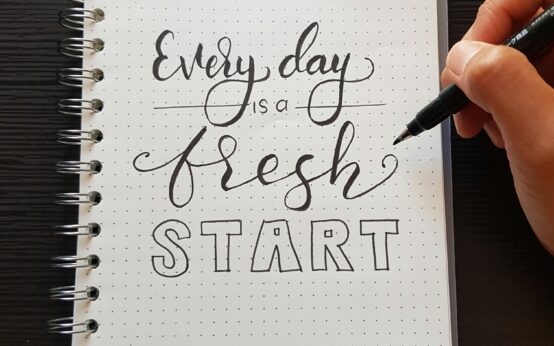Have you ever felt overwhelmed by the stresses of everyday life and wondered how you could alleviate some of that tension in a simple, effective way? Stress is something everyone faces, and finding the right tools to manage it can significantly improve your well-being. The good news is that you don’t need elaborate plans or luxurious retreats to take care of yourself. Incorporating self-care practices into your daily routine can provide the stress relief you need and support your mental and physical health.

Understanding Self-Care
Self-care is more than just pampering yourself with occasional treats or spending a day off work. It’s about maintaining a regular practice that supports your physical, mental, and emotional health. Here’s a closer look at what self-care entails.
What Is Self-Care?
Self-care encompasses activities and practices you engage in regularly to reduce stress and enhance your well-being. It includes basic daily tasks like brushing your teeth or sleeping well, as well as activities that specifically promote relaxation and well-being, such as meditation or exercise. The goal of self-care is to maintain balance in your life, keeping stress at bay and nurturing yourself in a holistic manner.
Why Is Self-Care Important?
When you prioritize self-care, you’re investing in your health and happiness. Taking care of yourself helps boost your immune system, increase your productivity, and improve your self-esteem. Plus, when stress is managed properly, you’re less likely to experience its harmful effects, such as anxiety or depression.
By making self-care a regular part of your lifestyle, you set boundaries and create space for healing and growth, enabling you to face challenges with greater resilience and clarity.
Simple Self-Care Practices for Stress Relief
Now that you understand the importance of self-care, let’s explore some simple practices you can incorporate into your routine to help relieve stress.
1. Practice Mindful Breathing
Mindful breathing is a powerful yet straightforward practice that helps calm your mind and reduce stress. It involves focusing on your breath and being present in the moment.
How to Practice Mindful Breathing
- Find a quiet and comfortable place to sit or lie down.
- Close your eyes and take a deep breath in through your nose, filling your lungs completely.
- Slowly exhale through your mouth, letting go of any tension.
- Continue this pattern for a few minutes, noticing the rise and fall of your chest.
This practice can be done anytime you feel overwhelmed. Regular mindful breathing helps lower blood pressure and decrease the stress hormone cortisol.
2. Establish a Consistent Sleep Routine
Quality sleep is essential to your overall health and plays a crucial role in stress reduction. Unfortunately, stress often disrupts sleep, creating a vicious cycle.
Tips for Better Sleep
- Set a Schedule: Go to bed and wake up at the same time every day, even on weekends.
- Create a Relaxing Bedtime Routine: Engage in calming activities like reading or taking a warm bath before bed.
- Limit Screen Time: Turn off electronic devices at least an hour before bedtime, as the blue light can interfere with your natural sleep cycle.
Prioritizing sleep can significantly improve your mood, cognitive function, and ability to handle stress.
3. Engage in Physical Activity
Exercise is a fantastic way to relieve stress. Physical activity releases endorphins, known as the body’s natural mood elevators.
Types of Physical Activities
| Activity Type | Description |
|---|---|
| Cardio | Activities like running, cycling, or swimming that increase heart rate and stamina. |
| Strength | Weight lifting or resistance training to build muscle strength and endurance. |
| Flexibility | Yoga or stretching exercises that improve flexibility and promote relaxation. |
You don’t need a gym membership to stay active. Consistent, enjoyable activities can help keep stress levels in check.
4. Practice Gratitude
Focusing on gratitude can shift your mindset from what’s stressing you to what you appreciate in life. It encourages positivity and happiness.
Ways to Practice Gratitude
- Gratitude Journal: Write down three things you’re thankful for each day.
- Express Appreciation: Thank someone in your life who has made a difference.
- Mindful Moments: Pause throughout the day to appreciate the small joys around you.
These practices can help you cultivate an optimistic outlook and reduce feelings of stress and anxiety.
5. Connect with Nature
Spending time in nature is a simple way to alleviate stress. It offers a break from technology and a chance to engage with the world around you in a meaningful way.
Nature Activities for Stress Relief
- Walking in the Park: Enjoy a stroll in a local park or nearby green space.
- Gardening: Planting, weeding, or simply spending time in a garden can be calming.
- Outdoor Meditation: Practice mindfulness or meditation outside, letting nature be your backdrop.
Nature has a soothing, healing effect, promoting a sense of peace and clarity.
6. Indulge in a Hobby
Focusing on activities you love can distract your mind from stressors and provide a creative outlet for your emotions.
Ideas for Hobbies
- Artistic Pursuits: Painting, drawing, or crafting can encourage self-expression.
- Musical Activities: Play an instrument or listen to your favorite music.
- Cooking or Baking: Try new recipes that challenge your creativity and bring joy.
Hobbies offer time for yourself, a way to break away from routine and engage in what brings you joy.
7. Limit Technology and Social Media
Technology is an unavoidable part of our lives, but excessive use, especially of social media, can increase stress levels.
Managing Technology Use
- Set Boundaries: Allocate specific times for checking emails or social media.
- Digital Detox: Periodically go technology-free to recharge.
- Mindful Consumption: Be selective about the content you engage with online.
Balancing screen time with offline activities fosters better mental health and reduces stress.
8. Practice Yoga
Yoga combines physical postures, breathing techniques, and meditation, making it an effective stress relief practice.
Benefits of Yoga
- Physical Health: Increases flexibility, strength, and balance.
- Mental Clarity: Promotes relaxation and mental focus.
- Emotional Balance: Encourages mindfulness and reduces anxiety.
Even short, daily yoga sessions can create significant positive changes in your mood and stress levels.
9. Cultivate Positive Relationships
Strong, supportive relationships can improve your mood and reduce stress. Whether family, friends, or community, having people to rely on is essential.
Building Positive Relationships
- Quality Time: Schedule regular catch-ups with loved ones.
- Open Communication: Share your thoughts and feelings with others.
- Encourage Support: Be there for others and accept help when needed.
Investing in relationships provides emotional support and boosts your ability to manage stress.
10. Practice Mindfulness and Meditation
Mindfulness and meditation are powerful tools for stress reduction. They involve being present in the moment and developing a deeper awareness of your thoughts and feelings.
Ways to Practice Mindfulness and Meditation
- Guided Meditations: Use apps or online resources to help you get started.
- Mindful Eating: Focus on the taste, texture, and aroma of your food.
- Body Scan: Check in with parts of your body to release tension.
These practices enhance self-awareness and promote a sense of calm.

Creating Your Self-Care Plan
Incorporating self-care into your daily life doesn’t have to be time-consuming or complicated. Here are some steps to help you create a self-care plan that suits your needs.
Identify Your Needs
Consider areas of your life where stress is most prevalent. Is it work, relationships, or health? Understanding what aspects require more attention can guide your self-care practices.
Set Realistic Goals
Set achievable and specific goals for incorporating self-care into your routine. For example, committing to a 10-minute meditation session each morning can be more effective and manageable than setting unattainable expectations.
Schedule Self-Care Activities
Add self-care activities to your calendar to prioritize them. Treat these appointments with yourself as non-negotiable and essential.
Be Consistent
Consistency is key. Your self-care routine should be a regular part of your life, not something you rely on only when feeling overwhelmed.
Adjust as Needed
Your needs may change over time, so be flexible with your self-care plan. Adjust activities as necessary to meet your evolving lifestyle and stressors.

Conclusion
Embracing self-care doesn’t require drastic changes or significant time investments. By integrating these simple practices into your life regularly, you can manage stress more effectively and enhance both your well-being and resilience. Remember, self-care is an ongoing journey. It’s about making a commitment to take care of yourself, so you continue to thrive and face life’s challenges with strength and a positive outlook.


 How To Create A Mindfulness Routine For Beginners
How To Create A Mindfulness Routine For Beginners  How To Incorporate Self Care Into Your Daily Life
How To Incorporate Self Care Into Your Daily Life  The Best Mindfulness Apps To Enhance Your Practice
The Best Mindfulness Apps To Enhance Your Practice  Self-Care Checklist: Essential Practices For Mental Health
Self-Care Checklist: Essential Practices For Mental Health  Self Care Ideas You Can Do At Home
Self Care Ideas You Can Do At Home  How To Practice Self Compassion: Tips And Techniques
How To Practice Self Compassion: Tips And Techniques  How To Create A Skincare Routine For Oily Skin
How To Create A Skincare Routine For Oily Skin  The Best Ingredients For Anti-Aging Skincare
The Best Ingredients For Anti-Aging Skincare  10 Skincare Myths That Are Wrecking Your Glow—Debunked by Experts
10 Skincare Myths That Are Wrecking Your Glow—Debunked by Experts  Natural Skincare 101: Everything you Need to Know
Natural Skincare 101: Everything you Need to Know  The Ultimate Guide To Sunscreen: What You Need To Know
The Ultimate Guide To Sunscreen: What You Need To Know  Best Anti-Acne Products: A Comprehensive Buyers Guide
Best Anti-Acne Products: A Comprehensive Buyers Guide